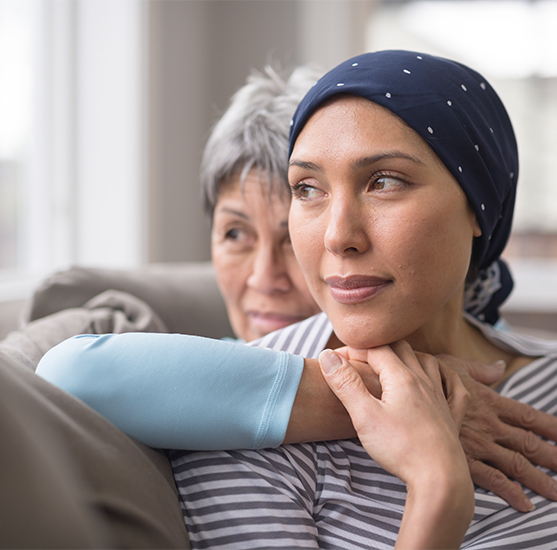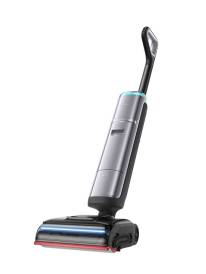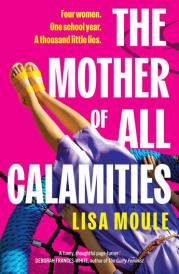Breast Cancer - Real Stories Turning a Cup of Tea into a Life Changing Conversation

New campaign encourages Australians to break the silence around breast cancer
Every day in Australia, 58 people are diagnosed with breast cancer. It remains the most commonly diagnosed cancer among women, with more than 21,000 new cases expected in 2025. Heartbreakingly, nine Australians die from the disease every single day.
Despite these confronting numbers, conversations about breast cancer are often avoided, leaving many women to face their fears in silence. A new national campaign from tea brand Tetley in support of Breast Cancer Network Australia (BCNA) aims to change that, by transforming something as simple as a chat over a cup of tea into what could be a life changing conversation.
The Uncomfortable Cup campaign, launched ahead of Breast Cancer Awareness Month this October, encourages Australians to have difficult but vital conversations about symptoms, screening, and support. Working together, BCNA and Tetley are using a range of approaches to start meaningful conversations and provide strength through shared experiences.
As part of the campaign, Tetley is raising essential funds to support the work of BCNA through a limited-edition pink pack of Tetley Tea Cup 100s from which it will be donating 5 cents for every pack sold to BCNA. Funds raised will help ensure that every Australian affected by breast cancer has access to BCNA's trusted information, support services, and advocacy.
To bring the campaign to life, Tetley has commissioned a series of unique artisan cups each with a sensory touch design relating to some of the physical symptoms individuals might be able to feel as part of self-examination. The mugs form part of a social media campaign that encourages Australians to share their experiences and spark action.
"Sharing a cup of tea can be the catalyst for conversations, which no matter how uncomfortable, are deeply necessary. Whether checking in with a loved one, sharing a personal story, or learning about symptoms and screening, these moments of connection can lead to early detection, greater understanding, and stronger support," says Divya Shrivastava, Head of Marketing ANZ, Tetley.
For more information, visit https://www.tetley.com.au/theuncomfortablecup/
Wendy Dean, 55, QLD:
"I was diagnosed with triple negative breast cancer in August 2015 through my yearly mammogram. I have a family history of breast cancer: My mother, aunt and sister have each had breast cancer.
"The year following my diagnosis, January 2016, I had a double mastectomy with reconstruction. Unfortunately, I got an infection in one of my breasts which led to a succession of operations in 2016 and in 2017 cancer was found in my lymph nodes and so I started chemotherapy in May that year followed by radiation. After a third recurrence of cancer was found in my lymph nodes, I underwent another round of radiation in 2018 and have been in remission since.
"I was a single mum with two awesome kids who were seven and 14 at the time I was first diagnosed, they got me through and have my greatest support. I was also fortunate to work for a company which helped us financially, so that weight being lifted was huge.
"The physical after effects of treatment led to a diagnosis of the chronic digestive disorder gastroparesis. It's been really important to maintain my mental health and my philosophy is 'Let doctors fix your body and you work on your mindset.' To others diagnosed with breast cancer I say that you don't know what you don't know so give yourself the grace to ask for help which, as I'm extremely independent, I struggled to do. My advice to friends and family is to show up and don't say "let me know if there's anything I can do" because that puts pressure back on the patient.
"Campaigns like Tetley's Uncomfortable Cup are important because they spark uncomfortable conversations socially that then encourage people to personally take action. The messages see more people attend checkups and do self-checks. People also become more informed. Campaigns can also correct misinformation which helps to de-stigmatise the diagnosis and thus show people that they are not alone on the walk they are on. Together, they shift breast cancer from being a whispered fear to a shared challenge we face openly, with compassion and action. Without awareness, too many people stay silent, skip checkups, or don't know their options.
"Without tough conversations, even the most aware communities won't know how to truly support someone going through breast cancer. Together, they shift breast cancer from being a whispered fear to a shared challenge we face openly, with compassion and action.
"Breast Cancer Network Australia helps ensure that all Australians who are affected by breast cancer receive the very best care, treatment and support. For more information go to bcna.org.au or call our free and confidential hotline on 1800 500 258."
Karley Spicer, 38, NSW:
"I was 34 when I was diagnosed with stage three early breast cancer. I was doing a self-check late in bed on a Sunday night and found a lump but didn't think much of it since I had been diagnosed with a benign fibroadenoma years earlier and it felt similar. Still, I had it checked by the doctor and had an ultrasound the following week which immediately showed signs of carcinoma, and another suspicious lump. A biopsy confirmed it and an MRI the following week showed I had two cancerous masses along with another 11 satellite tumours which all turned out to be cancerous. Talk about surprises! It was definitely much more than I had initially expected.
"My treatment began with Zoladex injections each month to immediately switch off my ovaries. My cancer was receptive to oestrogen, so the first treatment focused on stopping oestrogen from entering my system. I then underwent surgery for a single mastectomy of the right breast. This was during the height of COVID and because I didn't have cancer in my left breast, a mastectomy of my left breast was considered 'elective' surgery, which meant that it had to be done later. Added to this, my gene test came back inconclusive and so I had to get private health insurance and wait 12 months. This led to a series of surgeries, which is a whole other story.
"After my surgery we waited four to six weeks for everything to heal before beginning chemotherapy. I had 16 rounds of chemotherapy in total. There were a few bumps along the way including hospitalisation for COVID, so chemotherapy treatment went on a bit longer than planned. About 15 rounds of radiation followed chemotherapy, followed by daily oral hormone blockers, monthly Zoladex injections and six-monthly Zoledronic infusions. In June 2025 I ceased all medications to start our IVF journey.
"When I was first diagnosed with breast cancer a McGrath Foundation nurse contacted me to offer IVF since my husband and I had been trying to get pregnant with our first baby, we had only married four months earlier. We did a round of IVF before and after surgery which was also before I began chemotherapy. We ended up with nine embryos, which was a great result! I am now waiting until my body is flushed from medications and then we can try an embryo transfer come October, if all things to go plan!
"I relied on Breast Cancer Network Australia (BCNA) for most of my information. Being so young at the time of diagnosis I had never known anyone to go through treatment. I didn't know anything about different types of breast cancer, and I had no idea about how chemotherapy or radiation worked. I looked all of this up online and found the BCNA website the most useful, especially when it came to fertility information and what to expect.
"The most uncomfortable conversations were the ones letting my friends and family know what was going on. During COVID lockdowns we weren't catching up socially or going to the gym so if I didn't say anything, nothing seemed out of the ordinary. I considered carrying this on for as long as possible, although eventually I had to take extended periods off work and I thought it best to keep my closest friends and my family in the loop. It wasn't until I knew my treatment plan and was about to go in for surgery that I let my closest friends know what was going on, and to be honest, it was a text message in a group chat and even sending those messages out was so hard for me. Of course, my friends called me straight away and those conversations were even harder but I honestly just found the whole conversation from start to finish so uncomfortable. I'm not sure why, perhaps because saying it out loud and telling people made it real or maybe it was because I still couldn't believe something like this was happening to me and I didn't want this to worry people or make them upset.
The people around me, my husband, my family and my friends were the biggest support. This made telling them and the other people around me worth it. To know they were backing me and believing in me made all the difference and I'll never forget that.
There have been quite a few unexpected moments along the way. One that comes to mind was when the hormone changes kicked in during treatment and I was certain I had a UTI but nothing was showing up on tests. A doctor examined me and told me (very nicely, which I could imagine for was just as uncomfortable for her as it was for me) that I didn't have a UTI and the pain was soreness from a dry vagina. At 34 I'd never experienced this in my life because I hadn't been through menopause, although obviously now my body had been chemically induced into menopause because my flow of oestrogen had been stopped. I was mortified at the time and very embarrassed but the more I talked about this with other women it became a pretty funny story to tell. It's just not something anyone prepares you for, not even any of my specialists at the time! It's clearly another uncomfortable conversation health professionals need to have ha ha.
I also had not expected how left out I would feel socially. Not being able to go out during chemotherapy because of risks of catching COVID was leaving me feeling ostracised from everyone and feeling scared that they would forget about me.
No one prepares you for the fact that you lose your identity and it's even worse once you 'finish treatment'. Everyone is checking in on you and being so supportive throughout treatment but once you finish you feel like you're expected to go back to 'normal', back to work, back to the gym and back to normal life. What they don't realise is that fatigue kicks in worse after radiation has finished and it lasts months. Chemotherapy takes months to get out of your system, and it can play around with your energy levels. The hormone blockers on top of that changes your body and navigating how to grow your hair back can mess around with your confidence and how you physically feel. There's more to overcoming cancer than chemotherapy. The mental and emotional toll it takes is indescribable and probably something only someone who has been through it can understand.
Cancer sucks, treatment sucks. It will chew you up and spit you out not knowing which way is up but eventually you figure it out, and if you're one of the lucky ones there is life after breast cancer, and it can be even better than it was before. You need to make the most of it and live it for the ones that don't make it this far.
There are so many uncomfortable conversations that women don't have because society doesn't want to hear them or they're deemed not necessary to speak about in public, but times have changed, and women are speaking up because what we go through is worth talking about with each other so that we can help others and know that we're not alone or the only person facing something scary.
Breast Cancer Network Australia helps ensure that all Australians who are affected by breast cancer receive the very best care, treatment and support. For more information go to bcna.org.au or call our free and confidential hotline on 1800 500 258.
Michelle Warmuz 52, Melbourne
"Two years before I was diagnosed with Breast Cancer, I'd felt something was off. The year before, I had gone in for my scheduled mammogram and highlighted a rash around the nipple area that I was concerned about. It came back clear, so I was told there is nothing to worry about, you're fine. Wrong!"
"1 year later, as the rash persisted to grow, and become increasingly uncomfortable, I push my doctor for testing more options to see what is going on. She books me in for a mammogram and an ultrasound for that Friday. The mammogram is uncomfortable but nothing new. But that ultrasound saved me! As the nurse scans my "dense" breast tissue, it's clear something is wrong as she calls for a second opinion of the mammogram. This can't be good - but I really wasn't prepared for what followed."
"Within 1 hour, my doctor called me (unheard of right), so yes not good. She then proceeds to tell me that I'm booked in for a consult with a breast surgeon on Monday - no can you make it - just be there, longest weekend of my life."
"My breast surgeon was very calming and within minutes she was taking a biopsy (from a needle phobic) and booking a follow up appointment for a few days later. At this point I'm quite nervous and not thinking straight, with wild thoughts running through my head, did she just say cancer cells?"
"3 days later, my husband comes with me to the appointment, where the surgeon tells me I have Paget's disease, a lesser-known Breast Cancer in the 1%, and that she is booking me in for surgery within the week. It's a lot to take in, but I'm glad my husband is with me for the details, cause I'm not retaining much right now. All I can think of is the C word and what it means to my family. My husband lost his brother (aged 45) to cancer 10 years prior, so I've seen the worst, but it doesn't stop there - my daughter, is it a genetic curse I'm passing on? and -my son, how do I shield him with only 6 weeks till his final year 12 exams. I thinking of everyone around me, then it hits ME a few days later, is this going to kill me? Will I need chemo? Will I lose my hair? Some really dark thoughts set in and really don't want to talk to anyone, because they are going to ask, and I'm still processing... It's quite a scary, lonely place to be lost in your worrying thoughts."
"Skip ahead, and I have the surgery, but of course I'm a 1%, and complications are also in the 1% so I'm back in a week later for another surgery, it's like mastitis all over again."
"Good news is they got it, but Paget's is a lesser-known type, so the way forward is not clear which is a bit rattling. After few weeks of recovery, radiation starts, a 6-week course that I'll finish just before Christmas - timing sucks, but it has to be done. Radiation is a bit scary at first, but soon becomes routine and I'm no longer cold, radiating heat literally. The heat I get used to, but I'm tired and the sharp electrifying twinges that come with it are really not fun, my nerve endings feel fried. Finally, I'm done no more treatment for now. My body is exhausted, and the removed lymph nodes under my arm are the biggest point of constant pain (and still are). I'm told every year I'll need to undergo testing, while every day the mirror reminds me what happened - yes I could do corrective surgery - but why risk it. I'm ok, I'm one of the lucky ones right."
"But here is the interesting bit, I attend a school catchup (in the later weeks of my radiation), and a close friend who I haven't seen in person since this all began, asks me how I'm feeling. So of course, I fill her in on my journey and how important it is to push the doctor for more testing if you can feel something is off. The lady beside me tells me to shhh and that I shouldn't talk about it, because she has a friend with stage 4 breast cancer. I went away from that lunch confused and somewhat annoyed."
"She is wrong! If we can spread the word and talk about Breast Cancer, maybe less women will reach stage 4. Share your stories and raise awareness and most importantly, push for more testing when you can feel something is wrong. it just might save your life."
For more information, visit https://www.tetley.com.au/theuncomfortablecup/
MORE



